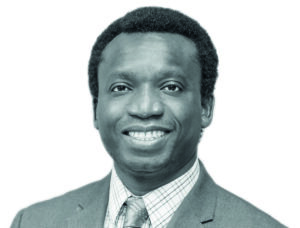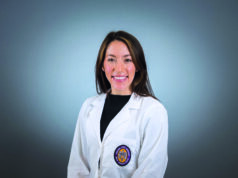 I enjoy listening to podcasts. In addition to my usual rotation through Audible Bleeding and Behind the Knife, I’ve found insight in listening to Hidden Brain. A recent episode centered on the concept of gratitude, where it was highlighted how quick we are to dismiss the good things that happen to us and perseverate on the negative, inconvenient or unsavory parts of our day—both for ourselves and those around us.
I enjoy listening to podcasts. In addition to my usual rotation through Audible Bleeding and Behind the Knife, I’ve found insight in listening to Hidden Brain. A recent episode centered on the concept of gratitude, where it was highlighted how quick we are to dismiss the good things that happen to us and perseverate on the negative, inconvenient or unsavory parts of our day—both for ourselves and those around us.
In training, this is sometimes expressed in complaint form. We complain about how difficult residency is; how certain residents/attendings/consulting specialties treat us. We find it cathartic to air out these grievances, all the while forgetting that once upon a time, this present state of being a trainee, was a dream—a position achieved through very hard work.
So, then, why should we be grateful?
There are a number of benefits, I think, that accrue from gratitude as a resident. Most important is the sense of being situationally aware and outward-focused. This allows for a growth mindset.
Such a framework sets the tone for becoming better—in skill and knowledge—at our job as surgical trainees. Challenges become opportunities; roadblocks become chances. For me, this means seeing my call status, not as a “black cloud,” but as an opportunity for learning. I’m not always successful at this, but it is an aspirational goal.
Another benefit that I identified from past chief residents and fellows is that the grateful ones were often superlative leaders. Because simply acknowledging the difficulties of providing care for patients at various levels— from the intern on the wards, to the OR staff setting up—is encouraging and uplifting. Frequently, this attitude would translate into a certain work ethic in the team and a cultural ethos that had patient care as the top priority. It’s nice to be noted for the hard work being put into quality patient care.
Finally, gratitude comes best through seemingly small acts that can become a habit. For instance, a congratulatory fist bump to a co-trainee, saying “well done” when something goes well, or even just taking the time to listen to the patient’s concerns, are all acts of being grateful for the opportunity to learn from the best clinical teachers—our patients.
This Thanksgiving month, as many contemplate gratefulness, on the wards, in the operating room, or in the angiography suite, I hope we are imbued with a sense of added gratitude to be living what was once a dream for all of us.
Christopher Audu, MD, is the Vascular Specialist resident/fellow editor.












